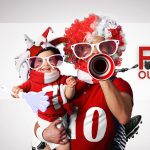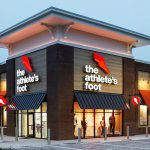With sales picking up in March with the arrival of seasonally spring weather, Big 5 Sporting Goods Corp. reported first-quarter earnings reached the higher end of its guidance.
Earnings rose 12.3 percent to $2.3 million, or 10 cents a share. Excluding expenses of 3 cents per share for charges for a legal settlement and expenses associated with the company's proxy contest with its largest investor, earnings would have reached 13 cents a share.
Revenues in the quarter rose 5.3 percent to $243.6 million with comps ahead 3.9 percent.
On Feb. 24 in reporting fourth-quarter results, the retailer said it expected Q1 profits in the range of 6 to 13 cents a share with comps ahead in the low to mid-single-digit range.
On a conference call with analysts, Steven Miller, chairman, president and CEO, said January was up in the low-double-digit range, boosted by “outstanding winter weather conditions in our Western US markets at the very beginning of the period around the New Year's holiday.” Comps were down low-single digits in February as the weather turned unseasonably warm, impacting winter recreational activities over the key Presidents' Day holiday weekend. Sales in March turned positive again, comping up in the low mid-single-digit range with spring’s arrival.
Transactions and average ticket both improved during the quarter, each up in the low-single-digit range versus the prior-year period.
From a product perspective, all major merchandise categories comped positively for the quarter. Apparel comped up in the high-single digits, and footwork comped up mid-single digits. Miller said its ongoing initiatives, including offering more branded products at stepped-up price points, benefited apparel and footwear.
He said the changes have been going on for a couple seasons in apparel and more recently in footwear. They include moving deeper into sizes and color offerings of the better selling models, shifting some buy dollars to support certain brands products, and bringing in higher prices in some cases. Said Miller, “We are excited with the direction it's moving. It's performed positively in Q1, it's continuing to perform positively Q2 to date.”
Hard goods comped up low-single digits. While firearm related products were still down, the decline was less than a year ago. Excluding firearms products, hard goods comps were up mid-single digits. Ammunition is trending more favorably.
Miller said the company believes sales were also “impacted to a degree” by the West Coast port slowdown as products it had expected to receive were delayed.
Gross margins in the quarter improved 10 basis points to 31.5 percent, helped by a 14 basis point improvement in merchandise margins.
SG&A expenses were even with 29.8 percent in the prior year. Overall, SG&A expenses increased $3.6 million year-over-year due in part to higher employee labor and benefit related expense, costs tied to store openings, partially offset by a decrease in print advertising expense. The expense line also included pretax charges of $400,000 related to a legal settlement and $500,000 associated with the publicly-disclosed proxy contest.
As reported, Stadium Capital Management, LLC (SCM), which owns over 11 percent of Big 5, in March announced plans to nominate three independent candidates to the sporting good chain’s board at its upcoming annual meeting. Miller said he could not discuss the topic further although the company expects proxy contest related expense will be higher in Q2 than Q1.
Regarding current trends, Miller the positive trends seen in March are continuing in the second quarter
“While April is a relatively low volume month and the critical sales period including Memorial Day and Father's Day remains ahead, we are encouraged by our solid start to the quarter,” Miller said. “We continue to experience strength across a broad array of product categories. And although we have some concern about the impact of the ongoing drought might have on summer recreational activities in our markets, we feel very positive about our product assortments and promotional plans as we move into the summer selling season.”
For the second quarter, the company expects same store sales to increase in the low to mid-single-digit range and earnings per diluted share to be in the range of 12 to 17 cents a share, excluding costs incurred related to a publicly-disclosed proxy contest. That compares to earnings of 12 cents a year ago.
Asked further about the truckers and port strike situations in the Q&A session, Miller said it’s too soon to fully assess a potential trucker’s strike. While most of the challenges related to the port slowdown are over, the chain may fall short on some spring/summer items. Said Miller, “We have several items that we think would be helpful to have for Memorial Day that's a bit touch and go whether we'll be receiving those on time. I don't think as a whole they'll be game changing type of issues. But they are issues.”
Elaborating on the potential risk factors around the drought challenges facing California, Miller said on the one hand it affects the local economy, particularly the farm communities the chain serves. From a recreational standpoint, snowpack this year is “down significantly” from historic level and that’s going to lead to lower water levels with lakes and rivers, impacting related recreational use.
With the water-use restrictions and the publicity around conserving water, water recreation products, such as pool toys, use of pools and inflatable pools, may be impacted. Miller also noted that campgrounds may be impacted if it affects the availability of showers and flushing toilets or if they close with the restrictions.
Big 5 is monitoring inventory levels around many of these categories. Said Miller, “It's a bit of a wait and see issue. Hopefully, it has a minor impact on our business, but it is certainly not helpful.”















